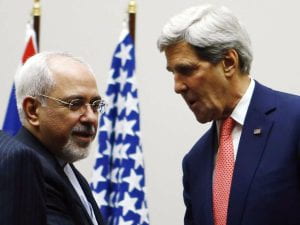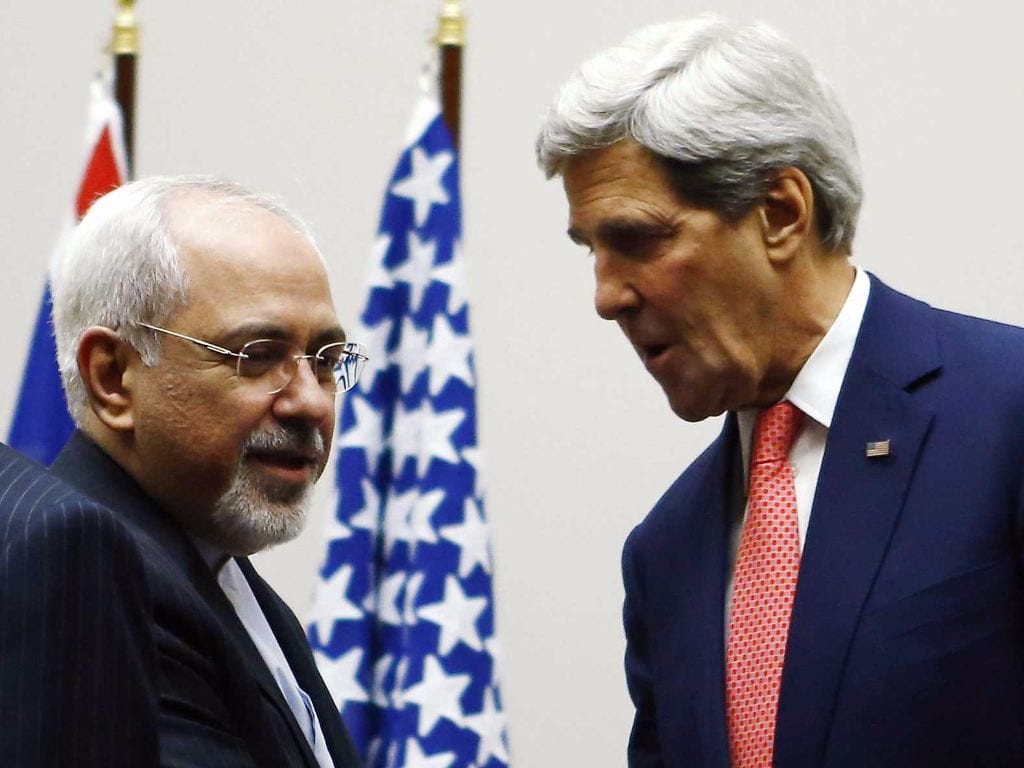BY RACHAEL BLANDAU – STAFF WRITER
For the past several months, there have been widely publicized talks in the United States surrounding a deal to lift sanctions on Iran if they give up the materials to maintain their nuclear program. This deal is largely beneficial for the United States and the world as a whole, as it takes away one of the world’s nuclear powers and thus the danger of radical terrorist groups acquiring these weapons.
First, the facts. While Iran would surge economically without the restrictions set upon them in 1979, this cannot be equated to nuclear weaponry production.. Terrorist organizations throughout the region—from Al Qaeda in Afghanistan to Hamas in Palestine—militant movements have never had trouble acquiring weapons. Though Iran would have enough economic growth for them to easily get weapons, it would not be any different than if they had been attained through other channels. The only difference is now, we would not have to worry about government manufactured nuclear weapons and enemies turning them against the United States or our allies.
In fact, this deal has been so widely publicized that vetoing its passage would leave Iran in a state that is worse than the one in which it began. If this deal falls through, the sanctions that have been at least partially effective at holding Iran back may also collapse in the aftermath, leaving the United States lacking a vital nonmilitary option..
We have the upper hand at the moment, as we are strangling them with sanctions on their oil companies and major federations as well as keeping the eyes of the world on their nuclear program. If the Iran deal does not pass, the United States and the Obama Administration will be shamed—not the Iranian government. All of the eyes of the world will be upon us as we deal with our embarrassment.
Former U.S. Undersecretary of State Thomas Pickering issued a letter recently supporting the deal.
“The consequences of rejection are grave: U.S. responsibility for the collapse of the agreement; the inability to hold the P5+1 together for the essential international sanctions regime and such other action that may be required against Iran; and the real possibility that Iran will decide to build a nuclear weapon under significantly reduced or no inspections,” Pickering wrote.
The only other option when engaging with Iran, besides diplomacy would be war. War is a terrible idea in any case, but especially with the likes of Iran. These sanctions with Iran were developed because of their dealings with nuclear weapons and their vast violations of basic human rights. While taking away these sanctions and dealing with Iran in a diplomatic manner may lead to a rise in human rights violations, it does take away one of the evils we have had to deal with—nuclear weapons, whose production was only slowed, never stopped, under the sanctions.
“War would probably be the worst idea the United States could engage in at this point in time,” Assistant Professor of Politics and International Studies Dr. Dina Badie said. “Iran is a much bigger country. Iran is not a country that would take it lying on its back, and Iran is currently fighting against ISIS. So, if there is no war and no sanctions, the only option is diplomacy.”

The United States is already spread thin on the war front, what with the multiple conflicts, potential conflicts, and terrorist groups around the world vying for our government’s attention. Therefore, to engage in a war with Iran would not only be costly on a money standpoint but it would also be foolish. After all, why take away one of the forces that is also combatting one of our major concerns in the terrorist group ISIS?
It seems then that despite the fact that this deal does not cover all of our concerns about Iran, it is a great first step—the only step we have taken concerning diplomacy with Iran since 1979.
“There is just no way that in the first set of talks between two countries that have had no diplomatic relations in forty years, that we can resolve every issue with them,” Dr. Badie said. “The problems that need to be resolved cannot be resolved in one nuclear deal.”
So, we must take this deal as a good first step towards diplomacy with Iran. Not everything that needs to be taken care of is being addressed, but it is a start.
